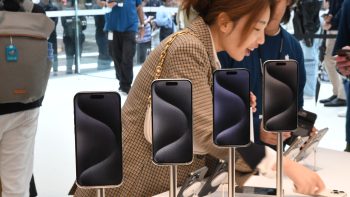How will the Library of Congress’s decision shape digital ownership?
How will the Library of Congress’s decision shape digital ownership?
If you bought a hammer, you could go home and pound any nail you want with it. But what if the company that made the hammer said you could only pound nails they approve and that they sold you? What kind of weird hammer is that?
Substitute hammer and nails with iPhone and software. Apple has always had control over what you could do on the iPhone it sold you.
But this week, the Library of Congress ruled that if you own an iPhone, you should be able to run any kind of software that works, not just what Apple says is okay. It’s called jailbreaking your phone. The decision has implications for any smart phone manufacturer but Apple is the most restrictive of what you can and can’t do on the phone they make.
It got us wondering about the whole idea of owning something digital. You could go to a (used) record store and buy Frampton Comes Alive on vinyl. And you would OWN that record, lend it out, use it as a frisbee if you wanted. But if you go to the iTunes store and download that same album, there are a host of restrictions. That’s because you’re not really buying it, you’re just licensing it, agreeing to a set of conditions under which you’re allowed to encounter it.
On today’s show, we explore the Library of Congress decision with veteran librarian and digital library consultant Karen Coyle. We also talk with Anthony Falzone, Executive Director of the Fair Use Project at Stanford University’s Center for Internet and Society.
There’s a lot happening in the world. Through it all, Marketplace is here for you.
You rely on Marketplace to break down the world’s events and tell you how it affects you in a fact-based, approachable way. We rely on your financial support to keep making that possible.
Your donation today powers the independent journalism that you rely on. For just $5/month, you can help sustain Marketplace so we can keep reporting on the things that matter to you.


















